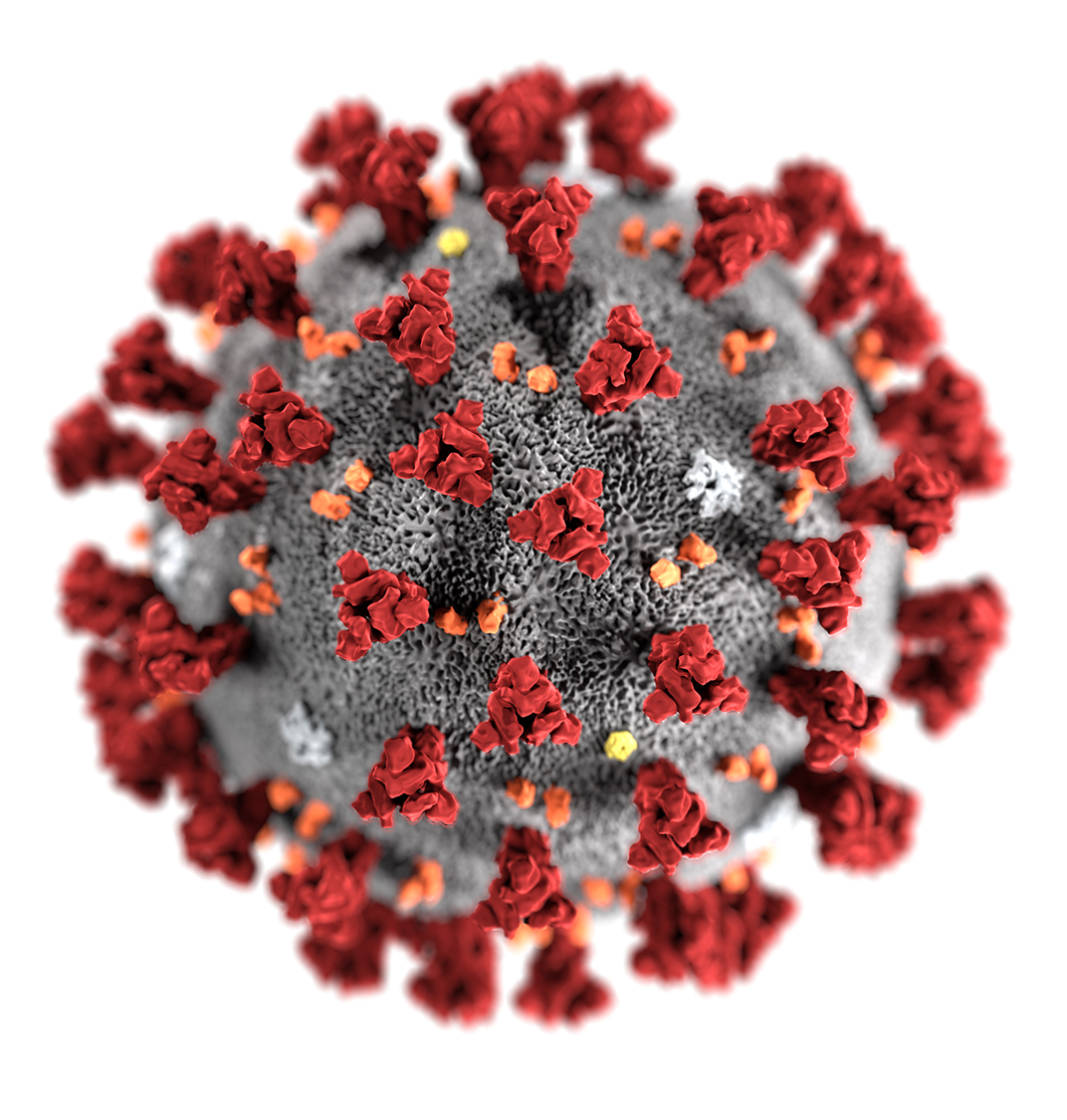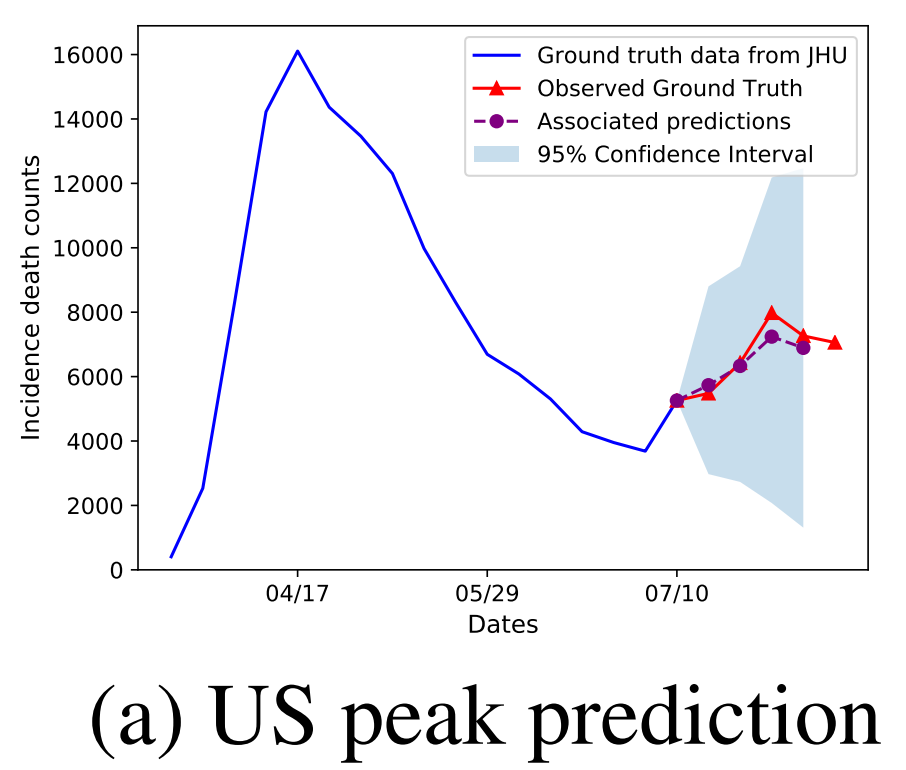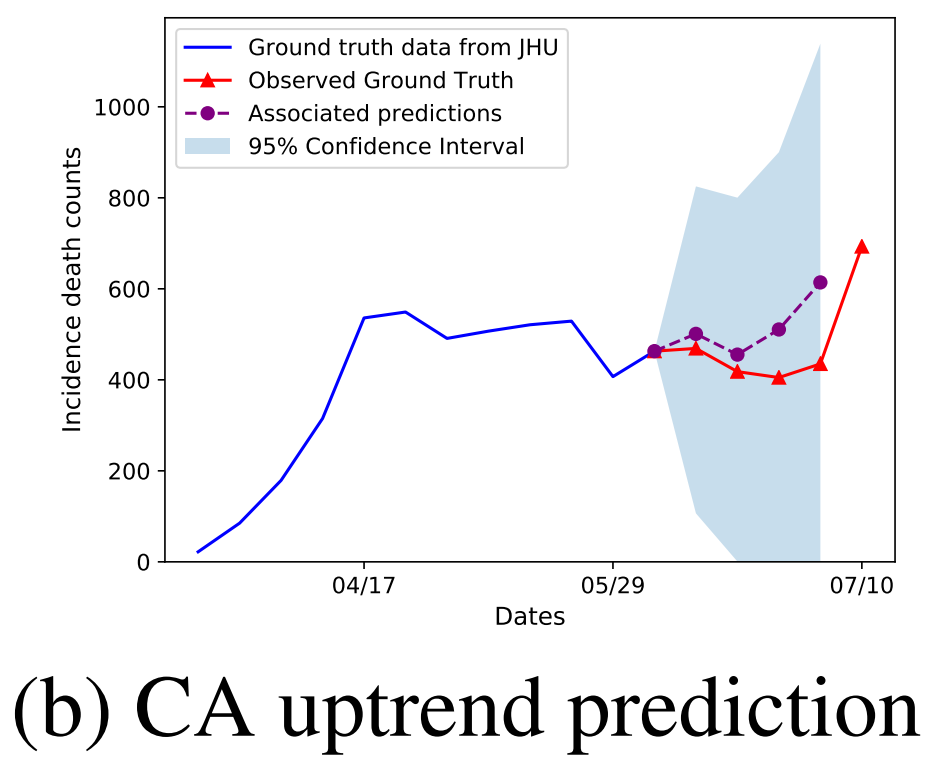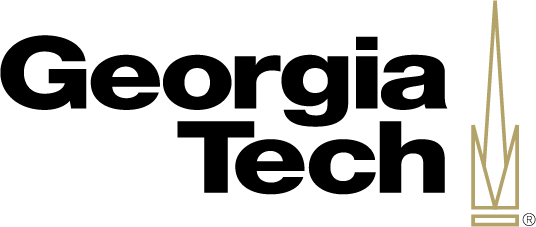
For COVID-19 US Mortality and Hospitalization Forecasting
About
The Centers of Disease Control and Prevention is hosting collaborative forecasting projects related to predicting the coronavirus disease spread, and anticipate the mortality and number of hospitalizations caused by the disease across the country. This critically timed project comprises a handful of teams of leading data scientists, epidemiologists, statisticians, and high-performance computing researchers from national laboratories, public universities, public health institutions, and some private sector agents. Our team is using deep learning models to forecast specific targets at the national, regional, state, and local levels. In addition to CDC data, we are incorporating many other real-time datasets such as syndromic surveillance data. We combine these datasets with domain knowledge using end-to-end deep learning models to predict targets on a weekly basis. The CDC synthesizes our weekly and monthly predictions with other models to help determine policy and other planning decisions to help communities prepare for and fight the disease. We have extensive experience with disease surveillance - AdityaLab has been leading a team at the CDC FluSight challenge since 2018 (our model EpiDeep had the best performance in the HHS1 region) and have published multiple research papers on incidence prediction at major venues (see here).
Results


We show two important changes in trend that our model DeepCOVID predicted with several weeks of anticipation: second peak in US national incidence mortality (left) and uptrend in CA incidence mortality (right); both of the pictures above use the JHU dataset as ground truth. Also see our latest results on mortality prediction on the CDC website and FiveThirtyEight. Also see our website for DeepCOVID.
Publications
Pre-print on DeepCOVID model (to appear in IAAI-21) [PDF], appendix [PDF] and other resources [LINK].
Pre-print on forecasting COVID-contamined flu (to appear in AAAI-21) [PDF]
[CODE].
Awards
Our team DeepOubreak (led by Georgia Tech, collaborators from UIowa and VT) expanded our published research and participated in several COVID-19 data science challenges. Our work (led by PhD student Alex Rodriguez) was awarded:
- 1st place (out of 35 global teams) in the COVID-19 Symptom Data Challenge (organized by Facebook/Catalyst Health/CMU). See winner announcement on Twitter [LINK], our white paper [PDF] and slides [PDF].
- 2nd place (out of 777 participants from 43 countries) in the C3AI COVID-19 Grand Challenge. See winner announcement on Twitter [LINK] and summary video [LINK].
Contact Us
Please email us with any comments/suggestions. Emails are also welcome if you want to help, collaborate or support our work!Funding
Our project is partially supported through (NSF CAREER, NSF CISE Expeditions, NSF IIS, NSF COVID RAPID, ORNL, GT and GTRI Rapid Seed Funds).
Team
Georgia Institute of Technology
- B. Aditya Prakash
(to whom correspondence should be addressed)
- Alexander Rodriguez
- Jiaming Cui
- Jiajia Xie
- Anika Tabassum
University of Iowa
- Dr. Bijaya Adhikari, recent PhD from AdityaLab, Asst. Prof. at University of Iowa
